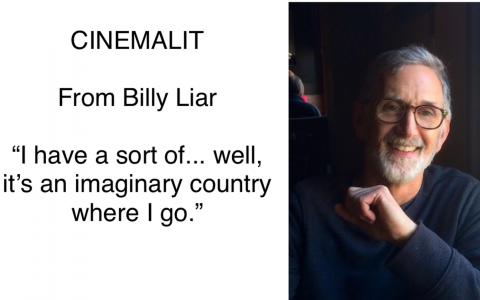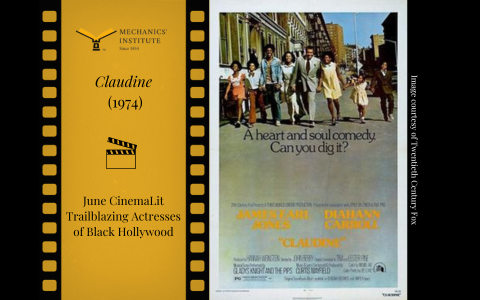
CinemaLit Popcorn Pop-Up Salon: May British New Wave
Hello Film Lovers,
Welcome back to CinemaLit! We have missed our Friday night gatherings. Laura, Pam, and I are excited to launch this new format for CinemaLit as we Shelter at Home. We will be viewing films on Kanopy and gathering online for a Popcorn Pop-Up Salon!
We start up with a month of British New Wave with three fantastic films from that rich era: Room at the Top (1959), A Taste of Honey (1961), and Billy Liar (1963). We finish May with two other British films of the 1960s that fall outside a standard labeling of New Wave: the anti-war film King & Country (1964) and the subversive if... (1968).
Matthew Kennedy, CinemaLit Curator
All you will need is either a Mechanic’s Institute library card, or a San Francisco Public Library card, which will give you access to Kanopy and its treasure trove of movies. Make a reservation as usual via Eventbrite and watch the film on Kanopy at your leisure. You will receive a link to the Friday night CinemaLit salon on Zoom two days in advance. On the night of the salon click the Zoom link and join us.
KANOPY INSTRUCTIONS
Mechanics’ Institute members can now sign up for FREE access to Kanopy, a wonderful film streaming service. To sign up:
1. Click on THIS LINK.
2. Click on the large orange login button that reads, “Log in to milibrary.”
3. Enter the 14-digit bar code from your MI Library card
4. Set up your account following Kanopy’s instructions, including your email and a password.
5. Kanopy will send verification to your email address.
You’ll be able to choose from a wonderful selection of films, including classics, pre-code, foreign films, and documentaries, including the films we’ve scheduled this month for CinemaLit.
If you are not a Mechanics’ Institute member, consider membership and click HERE to join online:
Or, you can check with your public library to see if they are Kanopy members. If so, you may use your public library card to set up a Kanopy account.
May: British New Wave
Unlike other British New Wave films, John Schlesinger’s Billy Liar combines whimsy with the dull conformity of its northern town. The title character “can’t say two words without telling a lie,” notes his exasperated father. Billy’s transgressions don’t end there. He tries to negotiate one engagement ring between two fiancées while covering up a petty crime at his miserable job keeping books for an undertaker. He is delinquent and disreputable, yet we can’t help but like him, or at least offer him a degree of sympathy. We certainly don’t begrudge him his beloved fantasy world of Ambrosia, where he gleefully indulges in revenge, political power, and mass adoration.
Billy Liar is rife with flavorful characters, but it works largely because of Tom Courtenay in the title role. He had played Billy on stage, and he “had such an innocence that was right for the part,” observed Schlesinger. As his dream girl, and the only character to understand and accept him, an unknown Julie Christie gives a ten-minute performance that vaulted her to international stardom. Soon after she (as well as Courtney and A Taste of Honey’s Rita Tushingham) appeared in the box office Goliath Doctor Zhivago (1965), while Christie went on to win an Oscar for Schlesinger’s Darling.
Many filmgoers and critics were initially unenthused about Billy Liar, the chief complaint being “tedious” and “repetitious” fantasy sequences. It is now routinely listed among the one hundred greatest British films of all time.
It marked the end of an era of sorts. Immediately after Billy Liar, British New Wave cinema moved on to “Swinging London.” The Beatles were on the horizon, as were more modish films such as The Comedy Man (1964), The Knack … and How to Get It (1965), Morgan - A Suitable Case for Treatment (1966), Georgy Girl (1966), Alfie (1966), and Blow-Up (1966).
Film critic Alexander Walker observed, “With Julie Christie [in Billy Liar], British cinema caught the train south.”
More about British New Wave Cinema
British New Wave Cinema of the late 1950s and early 1960s was a social-realist film movement that shed light on the hardships of working class life, usually in industrialized Northern England. These films have guts. They put into harsh focus the previously taboo subjects of race, abortion, unconventional families, homosexuality, and disability.
This moment in film history is also sometimes called British Neo Realism, or “Kitchen Sink” or “Angry Young Men” dramas. The British New Wave strove for cinema’s greater engagement in social issues. The films neither patronize nor sentimentalize the working classes, but rather expose the realities of being poor or struggling in England.
Director Lindsay Anderson’s manifesto on a series of modest documentaries he made in 1956 came to embody the entire movement: “The concern of [these films] is with some aspect of life as it is lived in this country today… Implicit in our attitudes is a belief in freedom, in the importance of people, and in the significance of the everyday.”
1959’s Room at the Top, all about a working class man’s ruthless social climbing, took the kitchen sink out of documentaries and into commercial feature filmmaking. Room was both groundbreaking and influential, and was followed by a brilliant succession of realist films, including Look Back in Anger (1959), Saturday Night and Sunday Morning (1960), A Taste of Honey (1961), A Kind of Loving (1962), The Loneliness of the Long Distance Runner (1962), The L-Shaped Room (1962), This Sporting Life (1963), and Billy Liar (1963).
Key directors, in addition to Anderson, were Jack Clayton, Tony Richardson, Karel Reisz, John Schlesinger, and Bryan Forbes. The list of actors who came to international prominence with these films is deeply impressive: Laurence Harvey, Alan Bates, Julie Christie, Albert Finney, Rachel Roberts, Tom Courtney, Rita Tushingham, and Richard Harris, among others.
I love these films. They’re tough-minded and uncompromising. On first view they may appear stripped of all cinematic finery, oppressive in their row houses, factories, drab offices, and brutal black-and-white close-ups. But they are bursting with heart and passion. Their austerity is punctuated by creative directing, scripts that crackle with insight and wit, exceptional acting, and our knowledge that they fundamentally changed film styles and storytelling. We’re still feeling their influence.
Curated by Matthew Kennedy
Matthew Kennedy, CinemaLit’s curator, has written biographies of Marie Dressler, Joan Blondell, and Edmund Goulding. His book Roadshow! The Fall of Film Musicals in the 1960s, was the basis of a film series on Turner Classic Movies.
“I don't have a favorite film,” Matthew says. "I find that my relationships to films, actors, genres, and directors change as I change over the years. Some don't hold up. Some look more profound, as though I've caught up with their artistry. I feel that way about Garbo, Cary Grant, director John Cassavetes, and others."
“Classic films have historical context, something only time can provide,” Matt observes. “They become these great cultural artifacts, so revealing of tastes, attitudes, and assumptions.”
CinemaLit Films


